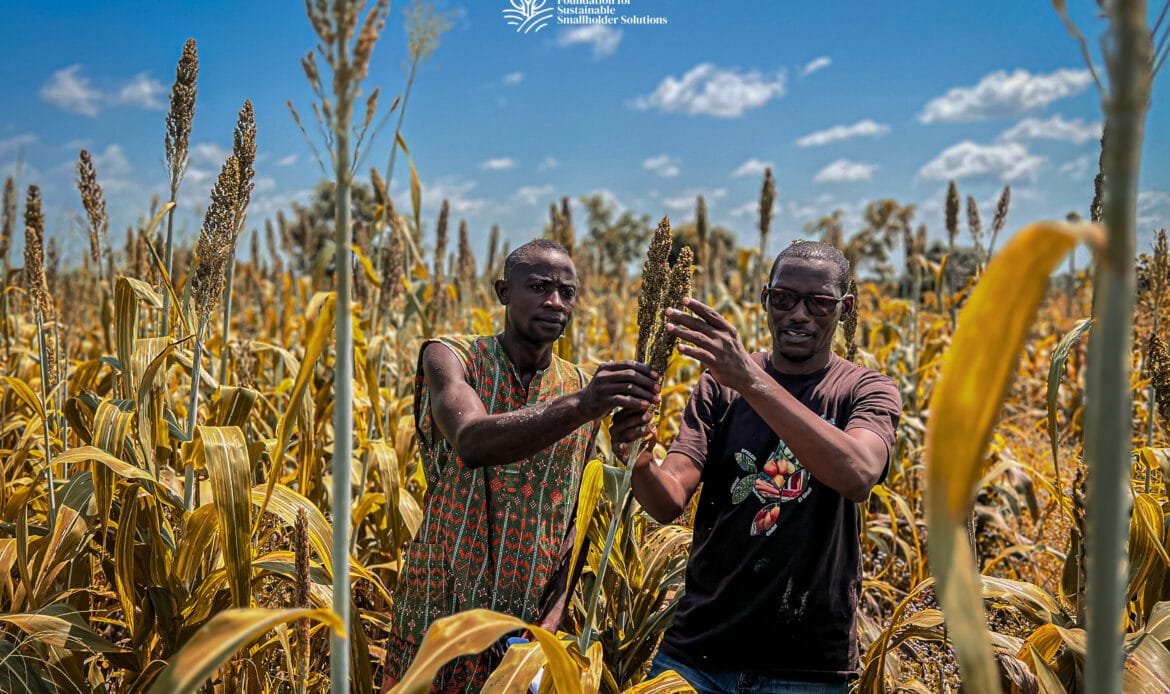The Foundation (formerly Syngenta Foundation Nigeria), under the AVISA project, conducted a survey to assess the impact of the COVID-19 pandemic on the use of certified seeds and grain production of cowpea and sorghum in Northern Nigeria. The study covered Kano, Kaduna, Jigawa, Benue, and Borno States, sampling nine seed companies, 400 farmers, 100 agro-dealers, and 100 consumers. Data were collected through questionnaires, farmer group interviews, and desk research, and analysed using descriptive statistics, correlation, regression analysis, and t-tests.
The respondent profile reflected the region’s agricultural landscape. Farmers were predominantly male (83 percent), married (91 percent), and at least secondary school educated (42 percent). Consumers showed similar demographics, with 75 percent male and 40 percent educated to secondary level. Farming was the main livelihood for 63 percent of respondents, while agro-dealership accounted for 3 percent, and others combined farming with additional income sources.
The findings provide robust evidence of how COVID-19 disrupted input supply chains, shaped coping strategies, and influenced production and market dynamics. They also demonstrate the critical role of certified seeds in sustaining productivity and incomes under stress.
Key findings
- Seed use and productivity. Certified seed use was positively correlated with yields and revenues at a 0.01 significance level. Regression analysis confirmed that farmers using certified seeds achieved higher yields and incomes, while reliance on home-saved seeds had a significant negative effect. In 2020, 81 percent of cowpea farmers and 65 percent of sorghum farmers relied on home-saved seeds, reducing productivity. Farmers using certified seeds benefited from proportional increases in revenue as grain prices rose, whereas those using home-saved seeds experienced undervaluation in the market.
- Seed company performance. Seed companies reported sales declines of 25–50 percent compared to 2019, yet production volumes across 2018–2020 did not differ significantly (p > 0.05). This resilience was linked to the AVISA project’s timely distribution of certified seeds before the 2020 planting season.
- Grain market dynamics. Despite fears of price collapse, 82 percent of farmers reported no decline in cowpea and sorghum prices during the lockdown. Instead, prices rose in 2020, reflecting strong local demand and restricted movement of goods. Regression results showed a positive correlation between grain prices and the quantity of grain purchased by consumers (p < 0.05), underscoring market resilience under stress.
- Varietal adoption. Most farmers cultivated local varieties: 56 percent planted local cowpea, 53 percent local sorghum, and 36 percent local rice. Among improved varieties, Faro 44 rice was the most widely adopted (36 percent of farmers), while for sorghum, 24 percent grew Kaura and 20 percent Samsorg 17. Many farmers lacked knowledge of the specific improved varieties they planted, indicating limited extension coverage and weak varietal awareness.
- Coping mechanisms. Relief distribution during the pandemic was limited. Only 27 percent of farmers received government palliatives, while 73 percent reported no support from government or NGOs. Coping strategies included borrowing from friends and family (49 percent), selling farmland or belongings (45 percent), and diversifying into non-farm activities (50 percent). Among agro-dealers, 62 percent borrowed and 54 percent sold assets. Consumers adopted substitution strategies, with 40 percent consuming alternative grains.
- Socio-economic profile. Farmers’ relatively high literacy levels (42 percent with secondary education and 13 percent with tertiary education) provide a strong basis for knowledge transfer through extension and digital platforms. However, this potential was underutilised, as 88 percent of respondents had no contact with extension agents during the pandemic.
Policy implications
- Promote certified seed adoption. Certified seeds significantly improved yields and revenues, while home-saved seeds undermined both. Policy should prioritise certified seed adoption through awareness campaigns, subsidies, and farmer education.
- Expand rural agro-input access. Even when affordable, certified seeds were often unavailable. Establishing agro-input outlets and farmer hubs in rural areas would improve availability, timeliness, and affordability.
- Strengthen relief and safety nets. With only 27 percent of farmers receiving palliatives, relief measures must be better targeted. Farmer cooperatives, local leaders, and community-based networks can improve distribution.
- Increase varietal awareness. The large proportion of farmers using improved seeds without knowing the specific varieties highlights gaps in extension. Demonstration-based training and varietal promotion are essential to close this awareness–adoption gap.
- Pursue inclusive seed system reform. Policymaking should involve scientists, seed companies, agro-dealers, farmers, processors, and consumers to strengthen resilience and ensure a seed system capable of withstanding shocks such as COVID-19.
Conclusion
The study shows that Northern Nigeria’s seed and grain systems demonstrated resilience during the COVID-19 pandemic, maintaining production levels and experiencing rising grain prices. Yet, critical vulnerabilities persist, notably farmers’ dependence on home-saved seeds, the limited reach of relief measures, and restricted access to certified seeds. Addressing these weaknesses requires a deliberate focus on expanding certified seed adoption, improving rural agro-input distribution, and reforming seed policies to include all value chain actors.
For Nigeria, investing in certified seeds goes beyond boosting yields. It is a cornerstone of food security and a driver of economic stability.
The Foundation advances this agenda through applied research, policy advisory, and field programmes that translate evidence into practical interventions tailored to farmer realities. The full study, The Impact of Covid-19 on Use of Certified Seeds and Grain Production of Cowpea and Sorghum Varieties in Northern Nigeria (Gabriel et al., 2021), is here.


